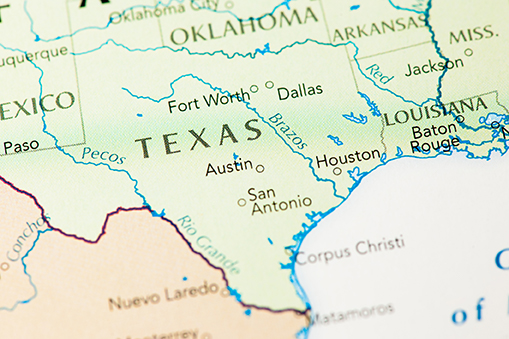Texas’s crackdown on border crime is off to a problematic start. As thousands of illegal aliens pour across the Rio Grande each week, Gov. Greg Abbott’s pledge to arrest and incarcerate criminal migrants has been undermined by recalcitrant local prosecutors and a poorly coordinated response from state officials.
Since two-dozen South Texas counties declared a border disaster in April, 1,000 additional state troopers were deployed to the region and a 1,000-bed correctional facility in Dilley was converted to house aliens arrested for violating state laws. But as of July 23, only 10 persons were held there.
Texas law enforcement officers can arrest migrants for offenses such as trespassing and criminal mischief, with charges upgraded to require up to a year in jail. Abbott, a Republican, said the state would not assist the Biden administration with their “catch and release” policy, and vowed that offenders would do serious time behind bars.
But despite thousands of apprehensions by state and local law-enforcement agencies — including a reported 100-plus felony arrests by officers on loan from Florida — legal action has been limp. The three largest counties in the Rio Grande Valley have refused to issue disaster declarations, and prosecutors there have pursued few, if any, cases against illegal aliens.
Hidalgo County Judge Richard Cortez flatly dismissed the notion that criminal migrants are a threat to law and order; valley prosecutors, fellow Democrats all, have stood down accordingly. “My greater concern is President Biden’s continued closure of our ports of entry that are having negative economic consequences on our community,” Cortez said.
Illegal alien arrests are up elsewhere. In rural Kinney County, between the ports of entry at Eagle Pass and Del Rio, Sheriff Brad Coe reports that since May state and local police have arrested 500 migrants, 20 on state charges.
But County Attorney Brent Smith told FAIR that the Dilley facility hasn’t accepted any of the migrants arrested in Kinney.
Last week, two Honduran nationals were busted in Kinney County on felony charges of smuggling and vehicle theft. But because there was no room at the local jail, state police handed the suspects over to U.S. Border Patrol, which may or may not deport them. Even if the duo were convicted, Dilley would not take them because, oddly enough, it admits only property violators, such as fence cutters and trespassers.
Val Verde County Attorney David Martinez, worrying that Dilley will become overloaded, says his office is “working really hard to minimize the amount of time [criminal aliens]have to sit in jail.”
Yet Dilley is anything but crowded as Smith sees a “huge disconnect” between the governor’s tough rhetoric and the loose legal realities on the ground. “Not only are we not on the same page, we’re not even in the same book.”
Smith says local prosecutors who fail to prosecute criminal aliens to the fullest extent of the law are “violating their oath of office.” Indeed, they are practicing their own Texas version of catch and release.





1 Comment
Pingback: Tough Talk in Texas Yields Little Jail Time at Border | 198 Immigration News